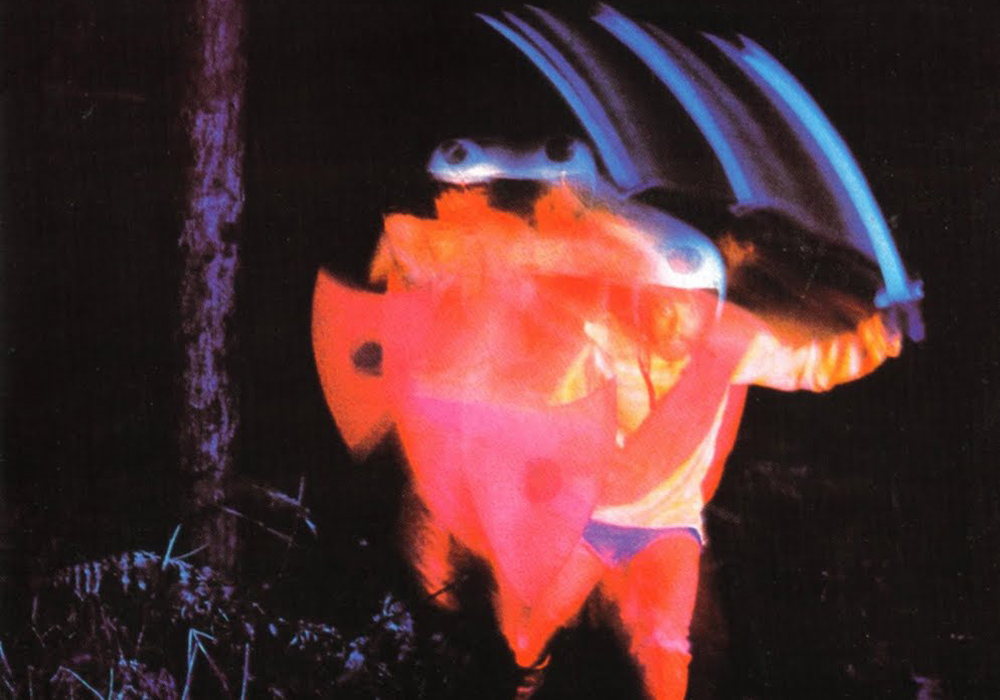
“Over across the tracks in the industrial side of Cream country lie unskilled laborers like Black Sabbath, which was hyped as a rockin ritual celebration of the Satanic mass or some such claptrap, something like Englands answer to Coven…. They even have discordant jams with bass and guitar reeling like velocitized speedfreaks all over each others musical perimeters yet never quite finding synch — just like Cream! But worse.”— from Lester Bangs’ zero-star review of Black Sabbath’s 1970 self-titled debut, published in Rolling Stone, September 17, 1970Rolling Stone has a complicated history with metal. They didn’t quite seem to get it when it started (see above); now, they recognize it as a meaningful historical phenomenon, in spite of the fact that they don’t cover it as often as rock, hip-hop, or indie. As paradoxical as it sounds, one could argue that that the greatness of metal, for Rolling Stone, is very much in the rear-view mirror. Case in point: The most recent album in the top 25 of their 100 Greatest Metal Albums of All Time list* is Tool’s Ænima— from 1996. In fact, only four records in the top 50 were made after the year 2000: Ænima, System of a Down’s Toxicity (2001), Mastodon’s Leviathan (2004), and Slipknot’s Iowa (2001). Most of the list’s more recent albums are tacked onto the lower 50, and especially in the bottom 20.Let’s step back for a minute, though. Is the list good? Yes. It covers many of the bases, and an overwhelming amount of legacy-level metal is included. It all seems well thought-out, its introduction containing a rather convincing argument about why bands like Led Zeppelin, Cream, AC/DC, Kiss, and Alice Cooper were left off. But, as any metalhead will notice, those weren’t the only bands left out of this list. There’s already been an explosion of critical reflection among the metal community—Metal Injection approves of the list, while MetalSucks does not—but the fact is that with any list like this, people are going to be mad, because everyone stands partial to their own favorite genres and albums. I’m already looking forward to meeting my friends at the bar, where I will undoubtedly hear about which obscure, contemporary French black-metal bands or little-known English prog-metal groups from the ‘70s weren’t on this list. That said, here are a few (abridged) points of my own.This list is very obviously geared heavily towards heavy metal and thrash, which is fine. Those are the forefathers. It’s also got a healthy representation of nu-metal (Korn, Slipknot, Deftones, System of a Down), which is the predominant contemporary subgenre on this list, for better or worse. Other variants of metal are mostly gestured to here with one or two slots. Some feel obligatory, some feel right. There are a few solid black-metal albums on here, but Mayhem’s De Mysteriis Dom Sathanas sits at at No. 40? That should be in the top 10—it’s one of the most influential metal albums of all time. The Norwegian black-metal scene has been so fundamental to the development of metal in the past 20 years that it can’t be overstated. It’s good that Darkthrone and Bathory got some coverage on here, but I don’t understand why they left off Burzum—who were equally integral to the mythology of that period—or Immortal. Burzum’s 1996 record, Filosofem, should be on the list.There’s not a ton of doom/funeral metal on this list. Sleep’s Jerusalem is necessary (No. 62), although many prefer the Dopesmoker version of that record—it would have been interesting to see a discussion of the relationship between the two. Sunn O))) (No. 98) should have been higher on this list. And Earth isn’t on here at all. This list has caused me to reflect on great groups that were left off, like Behemoth, Liturgy, Blut aus Nord, Boris, False, and countless more. (In my opinion, False’s Untitled is one of the most compelling metal records of the past decade.)Finally, I just want to put it on the record that my favorite Black Sabbath album is Vol. 4, but I understand why Paranoid was named No. 1, and I support it.* The following albums do not appear to be available on Spotify, and, as such, aren’t represented on this playlist: Tool’s Ænima, Diamond Head’s Lightning to the Nations, Def Leppard’s Pyromania, Manowar’s Hail to England, and Naked City’s Torture Garden.